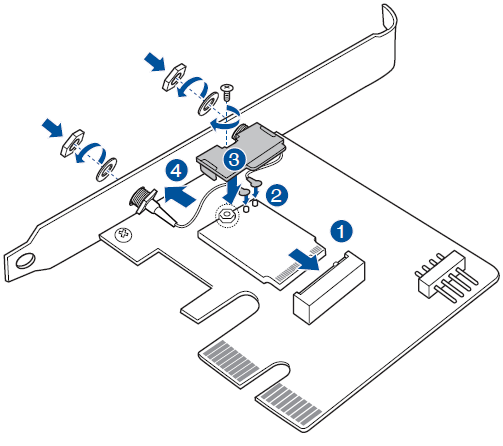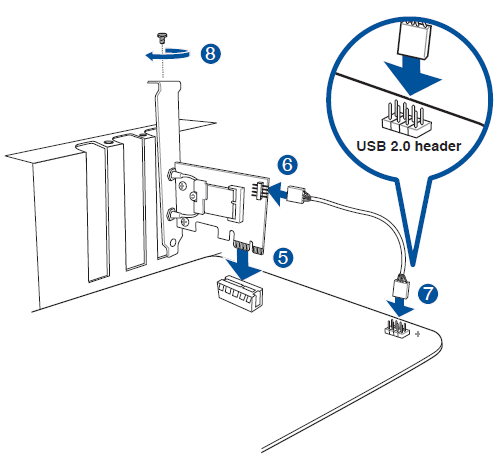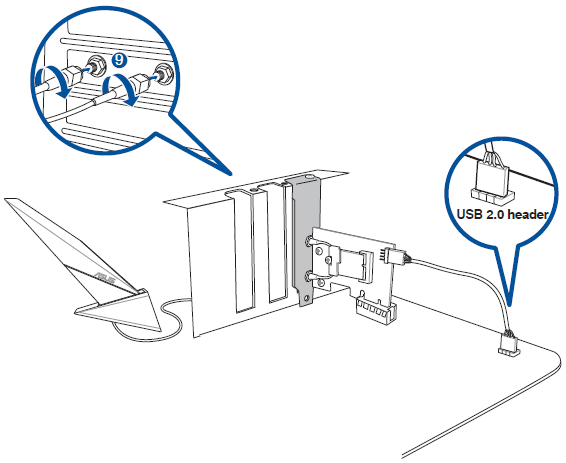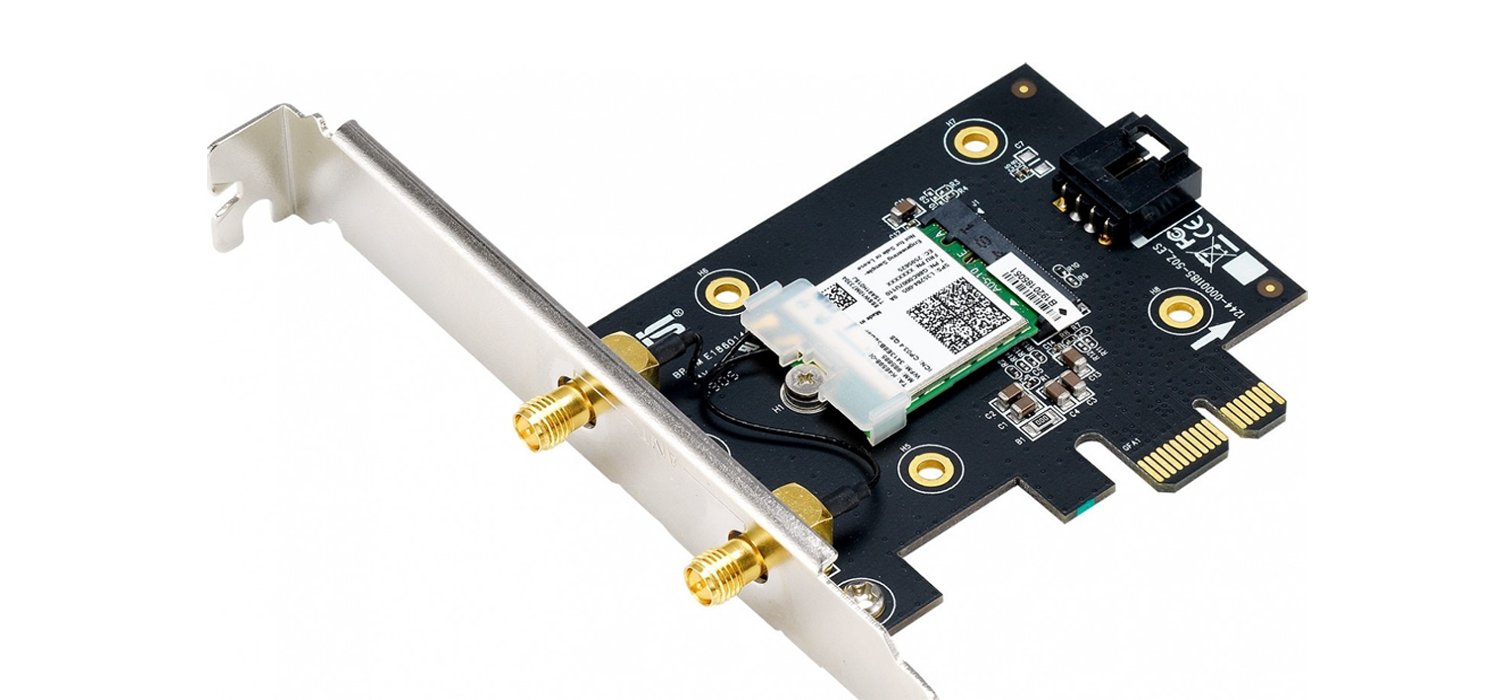ASUSPCIE WiFi Card / IntelInstallation Guide
Model: AX200
To install the PCIE WIFI CARD/INTEL AX200:



- Install the M.2 Wi-Fi card to M.2 Wi-Fi slot.
- Firmly insert the pin ends of the two RF cables into the holes on the M.2 Wi-Fi card.
- Attach the plastic cover to the M.2 Wi-Fi card, and then secure it with the bundled screw.
- Insert the two RF cables into the bracket separately and secure them with the bundled screws.
- Install the M.2 Wi-Fi card to PCIe slot on your motherboard.
- Connect the USB 2.0 cable to the BT_USB header on the M.2 Wi-Fi module.
- Connect the USB 2.0 cable to the USB 2.0 header on your motherboard.
- Install the bracket to your chassis.
- Connect the bundled antenna to the RF cable.
Important!
- This equipment should be installed and operated with a minimum distance of 20cm between the antenna and your body.
- Before installing and using the M.2 card, carefully read the manual that came with the package.
- Use ONLY the bundled RF cable and antenna.
- Any changes or modifications to this device not expressly approved by ASUS could cause harmful interference to radio communications and void the user’s authority to operate the equipment.
FCC Compliance Information
Responsible Party: Asus Computer InternationalAddress: 48720 Kato RD., Fremont, CA 94538Phone / Fax No: (510)739-3777 / (510)608-4555
Identification of the assembled product: PCIE WIFI CARD/INTEL AX200
Identification of the modular components used in the assembly:Model Name: AX200NGW FCC ID: PD9AX200NG
This device complies with part 15 of the FCC Rules. Operation is subject to the following two conditions:
- This device may not cause harmful interference, and
- This device must accept any interference received, including interference that may cause undesired operation.
This equipment has been tested and found to comply with the limits for a Class B digital device, pursuant to part 15 of the FCC Rules. These limits are designed to provide reasonable protection against harmful interference in a residential installation. This equipment generates, uses and can radiate radio frequency energy and, if not installed and used in accordance with the instructions, may cause harmful interference to radio communications. However, there is no guarantee that interference will not occur in a particular installation. If this equipment does cause harmful interference to radio or television reception, which can be determined by turning the equipment off and on, the user is encouraged to try to correct the interference by one or more of the following measures:
– Reorient or relocate the receiving antenna.– Increase the separation between the equipment and receiver.– Connect the equipment into an outlet on a circuit different from that to which the receiver is connected.– Consult the dealer or an experienced radio/TV technician for help.
RF exposure warning
This equipment must be installed and operated in accordance with provided instructions and the antenna(s) used for this transmitter must be installed to provide a separation distance of at least 20 cm from all persons and must not be co-located or operating in conjunction with any other antenna or transmitter. End-users and installers must be provide with antenna installation instructions and transmitter operating conditions for satisfying RF exposure compliance.
Compliance Statement of Innovation, Science and Economic Development Canada (ISED)This device complies with Innovation, Science and Economic Development Canada licence exempt RSS standard(s). Operation is subject to the following two conditions: (1) this device may not cause interference, and (2) this device must accept any interference, including interference that may cause undesired operation of the device.
CAN ICES-3(B)/NMB-3(B)
References
[xyz-ips snippet=”download-snippet”]

